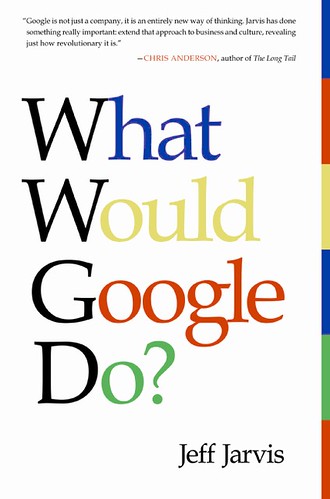HOW TO: Use twitter to help your organization

- Image via CrunchBase
People have recently asked me:
“How can I use Twitter to help my organization? I know I need to be on there, but how do I use it? What do I do?”
Answer (3-parts):
- Define your organization’s objective
- Establish your voice
- Build an audience
DEFINE YOUR ORGANIZATION’S OBJECTIVE:
Before you do anything, you first need to define what it is exactly you are trying to accomplish. Are you selling something? A product or service? Are you recruiting or building a team? Are you entertaining for the sake of amusement? Are you informing and educating on a specific topic? Is it a mix or variation of the previously mentioned?
Once you figure out what your ultimate goal is, you can than establish a voice within twitter (or any social networking or media property for that matter) in order to communicate your goals.
ESTABLISH YOUR VOICE:
Now that you have figured out what you want to convey, you need to figure out how you will say it. People use twitter in many different ways, but 3 key examples are:
1. The “What I’m Doing” Method (Real and Random Examples):
- Tonight…I am going to hit the treadmill. YIKES.
- Taking a fun, random drive on a warm spring evening.
- Just had the world famous Bongo Burger Aka Persian Burger. Ohhh yeaaah!
- Eating with @—– at pf changs
- At meeting, Fed to weigh options to revive economy (AP) http://cli.gs/PVX3HG #Finance
Unless I personally know who you are, I’m probably going to unfollow you if you tell the world “Tonight…I am going to hit the treadmill. YIKES.” I mean, I really could care less if you are going to work off that cheeseburger you just ate for dinner. However, if you for example are someone big in the finance community and tell me “At meeting, Fed to weigh options to revive economy (AP) http://cli.gs/PVX3HG #Finance”, than I probably do care a bit about what you are doing.
Point is, when being personal and communicating in the first person, make sure what you are saying coincides with your goal as an organization.
2. The “Check This Out” Method (Real and Random Examples):
- WallStSourceCAW workers ratify Chrysler agreement, http://www.financialpost.co…
- WorldPoliticsKremlin pick wins Sochi mayoral election – OneNewsNow (http://cli.gs/S86nPt)
- BreakingNewsAuthorities investigate eleven possible swine flu cases in Colombia and Minister Palacio says the government is on high alert – local media.
- financialtimesCut-price bids made for AIG’s aircraft unit: Three groups have submitted bids for less than $5bn for Internation.. http://tinyurl.com/d2qyje
Look at the Twitter name. Look at the update. Very purposeful, very informative, and most importantly, the message ties back to the goal of that organization.
3. The “Conversation” Method (Real and Random Examples):
- ToddStottlemyre@alphatrends never know with this mky, it could be up 100 before we open
- alphatrends@A_F ok for the slower crowd (-; the stock market, as measured by s&p 500 futures (ES) is currently down 11.25 points or 1.27% LOL
- TradeIdeasShowcase Sunday: Interesting followers: @PeakOilNews – survey of what pundits and detractors are saying about peak oil theory or reality.
- twsuccessRT @TriumphDining: We’re now on Facebook. We’ll answer restaurant questions in discussion forum, become a fan. http://tinyurl.com/cwouav
If I’m going to consider your organization legitimate and beneficial, I’d like to see that you are involved with some other people or organizations that are influential in your space. Demonstrate that you are engaged in your own community or niche market. This method, in conjunction with other twittering tactics, is how you are going to build an audience.
BUILD AN AUDIENCE
Now that you’ve identified what you want to say and how you are going to say it, you need to get together a group of people that will listen to you and hopefully pass along whatever it is you may be saying. You need followers.
If you are starting from ground zero and no followers on twitter:
- Head over to Summize.com or http://search.twitter.com/ (same thing).
- Type in some keywords that coincide with your organization’s objectives.
- Follow the people that are speaking your language and talking about the things you will be talking about. Reach out to them and tell them about your organization.
If you already happen to be on Facebook and want to leverage your existing FB network:
- Log in to Facebook and download the Facebook- Twitter application: http://apps.facebook.com/twitter/
- Now everyone in your Facebook network will get your Twitter updates.
At the end of the day the best way to learn anything is simply by doing, so if you are looking to create value from Twitter, just head over to to www.twitter.com, create an account, and dive right in.
Some tools that I use to help with Twitter:
- Tweetdeck – for the desktop
- Twitterberry – for blackberry
- dabr.co.uk – open source mobile site (type this URL into your phones web browser)
- Facebook App

![Reblog this post [with Zemanta]](https://img.zemanta.com/reblog_e.png?x-id=06799282-9876-43d1-9340-631983f8b4aa)

![Reblog this post [with Zemanta]](https://img.zemanta.com/reblog_e.png?x-id=90f48a3f-e11f-4ceb-936e-338768d4a663)
![Reblog this post [with Zemanta]](https://img.zemanta.com/reblog_e.png?x-id=675de535-501e-4634-83cf-9a76ffd2c64f)

![Reblog this post [with Zemanta]](https://img.zemanta.com/reblog_e.png?x-id=1934b7a9-51d9-4d50-8e0f-0552717592ad)

![Reblog this post [with Zemanta]](https://img.zemanta.com/reblog_e.png?x-id=6cd75dbb-127b-482d-9b01-e1aa7f6b141c)
![Reblog this post [with Zemanta]](https://img.zemanta.com/reblog_e.png?x-id=9efcea52-ea65-459a-acc8-5bd1256ad195)
![Reblog this post [with Zemanta]](https://img.zemanta.com/reblog_e.png?x-id=a7040a03-8dbc-4861-82ca-733456bbeb53)

![Reblog this post [with Zemanta]](https://img.zemanta.com/reblog_e.png?x-id=59939bae-59e7-4e68-9da4-f6596d5f33ba)

![Reblog this post [with Zemanta]](https://img.zemanta.com/reblog_e.png?x-id=d7a8606c-8232-4834-99cd-b8c065a06bb3)

![Reblog this post [with Zemanta]](https://img.zemanta.com/reblog_e.png?x-id=9b895310-5bcc-4a8d-bb36-cf273b3b2ffb)